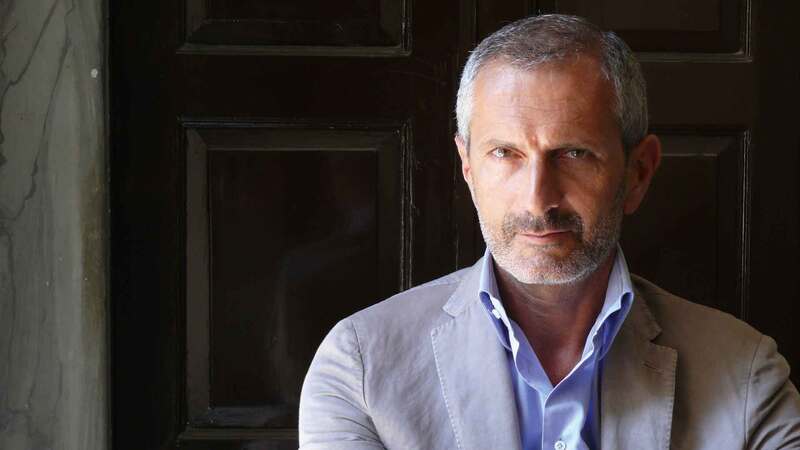You are viewing your 1 free article this month. Login to read more articles.
New order
Husband-and-wife writing team Nicci Gerrard and Sean French (aka Nicci French) have launched their very first crime series with Blue Monday (Michael Joseph, June). After a string of 12 very successful stand-alone psychological thrillers, what inspired them to begin a series?
"It felt like we had to move out of that comfort zone," explains Gerrard when I meet both authors at the house they share in a sleepy Suffolk village. The earlier thrillers were "about extraordinary things that happen to ordinary people, and the psychological impact [on them]," and always narrated from the point of view of the heroine under threat. The new series features Frieda Klein, a London-based psychotherapist in her mid-30s.
The pair were keen not to have a police officer as a central character, preferring to have an outsider drawn in to the crime-solving world, although, as Gerrard notes, "she is a detective in a way, but she's a detective of the mind."
Frieda is an insomniac, pounding the streets of central London, where she lives alone, until the early hours. She devotes herself to her psychotherapy work, and only contacts the police when one damaged patient starts to describe a young child he has been dreaming about—and his description matches that of an abducted five-year-old. Alongside this central mystery, which twists and turns most satisfyingly, we also discover a little more about Frieda, but not too much: "Part of what we want to do over the coming novels is find out about Frieda; she is a mystery all by herself, one which will gradually unravel," says Gerrard.
Besides Frieda, other series characters are introduced in Blue Monday—her niece Chloe, a stroppy teenager, and Reuben McGill, the psychotherapist who trained Frieda, but is now becoming increasingly unstable himself. Having returning characters allow the authors to cover "that sense of time passing; of what happens to characters over time; how does life affect them; how they change, which you can only do with a series," says Gerrard. London is also a minutely observed character: "we almost thought of them [Frieda and the city] in parallel, London is full of its own secrets."
The pair have a long discussion period before they write a word of a new thriller. "It's a matter of finding something that we're both equally enthusiastic about," explains French. They talked about Blue Monday for about five months. "It's almost like having a map," says Gerrard, "you know where you're starting from and you know the kind of landscape you want to be travelling through.
"Because we're writing together and we want to be writing the same book, it's very important that when we begin writing we've got the same book in our heads. So we need to know who our characters are, what they are feeling, what their voices are like."
Their working method has remained unchanged since their first collaboration—one will write the first chapter and email it to the other, who then revises and edits it before writing the next chapter, and so on. They never write anything together: "the preparation and the research is joint" says French, "if we want to look at an area, we go together; if we want to read about something, we both read about it—but the writing is completely separate." They have few writing rules but "if Sean has changed something I've written I can't go back and change it [again]," says Gerrard: "We have to trust each other's editing skills."
French and Gerrard first met as journalists on the New Statesman in 1989, and a few years later made the decision to collaborate on a thriller as Nicci French. The result was The Memory Game (1997).
Eight books are planned in the Frieda Klein series, following the characters over a decade, and each title will centre around days of the week. The authors also allude to a mysterious sounding metaphysical 9th thriller, which will arch over the actual books "which concludes at the end of the 8th thriller—it almost binds them together."
Reflecting on the task ahead French says, "There's almost a hubris about saying we're going to write eight books. There's a danger we're going to take the reader for granted . . . Each book has to work on its own." Gerrard agrees, "We've got to absolutely finish each book, but not finish it!"












